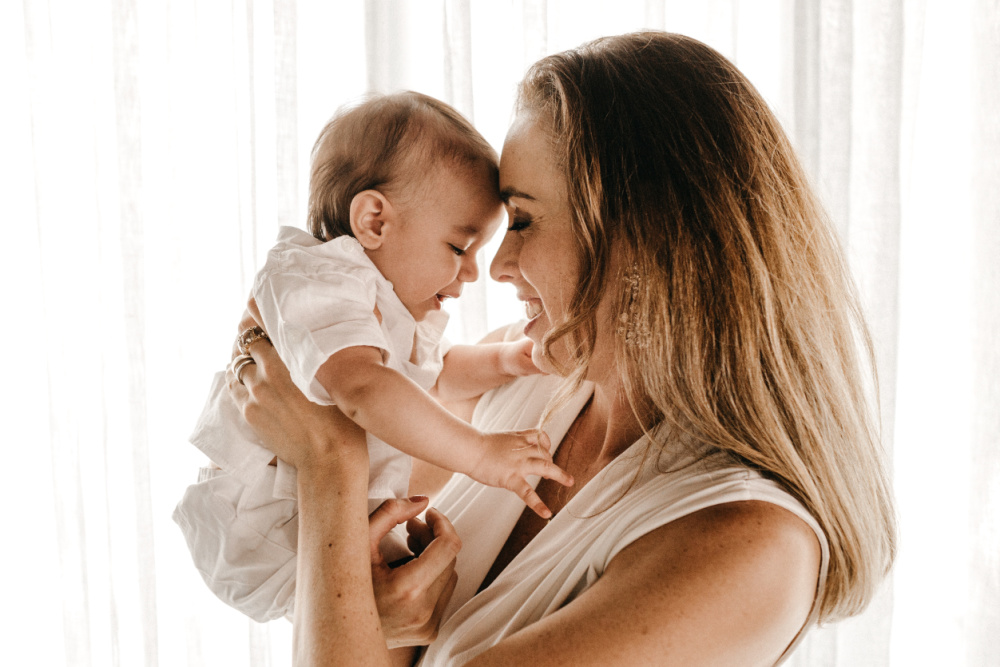Bringing new life into the world is a remarkable journey, but for many new mothers, the postpartum period can come with an unexpected side effect: hair loss. Postpartum hair loss, also known as telogen effluvium, is a common condition that affects women after childbirth.
It occurs due to hormonal changes and typically begins around three to six months after giving birth. While the excessive shedding can be alarming, the good news is that it is usually temporary and resolves independently.
This article will delve into the causes of postpartum hair loss, discuss treatment options, and explore preventive measures to help new mothers navigate this phase with confidence and reassurance.
Hair Loss and Pregnancy: What’s the Link?
Pregnancy is a transformative journey for women but can also bring about some unexpected changes, including hair loss. While many women experience luscious, thick hair during pregnancy due to increased hormone levels, they may encounter postpartum hair loss a few months after giving birth.
During pregnancy, elevated hormone levels prolong the growth phase of hair, resulting in thicker, fuller hair. However, hormone levels drop significantly after childbirth, causing the hair follicles to enter a resting phase.
This shift disrupts the natural hair growth cycle, leading to increased shedding. Physical and emotional stress, sleep deprivation, and nutritional deficiencies can also contribute to postpartum hair loss.
It’s important to note that postpartum hair loss is temporary, and most women notice regrowth within a few months as hormone levels stabilize.
Treating Post-Pregnancy Hair Loss
While post-pregnancy hair loss is usually temporary and resolves on its own, there are several measures you can take to manage and promote regrowth. Ensuring a balanced diet rich in vitamins and minerals, particularly iron and biotin, can support hair health.
Gentle hair care practices, such as avoiding excessive heat styling and tight hairstyles, can help minimize further damage.
Over-the-counter minoxidil solutions may be considered after consulting with a healthcare professional. Practicing stress-reducing techniques and maintaining a healthy lifestyle can contribute to overall hair health. Remember, patience is key, as it can take several months for the hair to recover and return to its pre-pregnancy state.
Peptides and IV Vitamins May Enhance the Efficacy of Conventional Treatments
Recently, peptides and IV vitamins have gained popularity as a complementary treatment option for post-pregnancy hair loss. Peptides – small proteins that can help stimulate hair growth – can support hair health and regrowth. Ensuring your hair is getting the vitamins and minerals it needs can also help counteract hair loss.
IV therapy delivers a concentrated blend of essential vitamins directly into the bloodstream, bypassing the digestive system. This method allows for greater absorption and efficacy compared to oral supplements. IV therapy can potentially enhance their effectiveness when combined with conventional treatments like minoxidil or hair growth serums.
However, it’s important to consult with a healthcare professional to determine the appropriate dosage and combination of treatments for your specific needs.
How to Prevent Post-Pregnancy Hair Loss
While it may not be possible to prevent post-pregnancy hair loss completely, you can take steps to minimize its severity and duration.
Maintaining a healthy lifestyle, including a balanced diet and regular exercise, can support overall hair health. Taking prenatal vitamins during pregnancy and continuing with a nutritious postnatal diet can help ensure adequate nutrient intake.
Managing stress levels through relaxation techniques or seeking support from loved ones can also minimize hair loss. Finally, being patient and understanding that post-pregnancy hair loss is a temporary phase can help alleviate anxiety and stress associated with the condition.
Considering complementary treatments like IV vitamins or a self-injectable peptide for hair loss may enhance the effectiveness of conventional treatments. Remember, patience is key, as regrowth can take time.
Final Words
Post-pregnancy hair loss can be a distressing experience for new mothers, but it’s important to remember that it is usually temporary. By understanding the causes and taking preventive measures, you can minimize its impact on your self-confidence and overall well-being.
Embracing a healthy lifestyle, including a balanced diet and stress management techniques, can contribute to maintaining hair health. Gentle hair care practices and avoiding excessive heat styling can prevent further damage. Getting adequate nutrition and utilizing vitamins or peptide treatments can support hair health from within.
Focus on embracing the joy of motherhood and be reassured that your hair will likely recover and return to its pre-pregnancy state in due course. Take care of yourself, be kind to your body, and cherish the beautiful journey of motherhood.
Sources
- https://www.forbes.com/health/conditions/postpartum-hair-loss/
- https://health.clevelandclinic.org/postpartum-hair-loss/
- https://www.aad.org/public/diseases/hair-loss/insider/new-moms#:~:text=Many%20new%20moms%20see%20noticeable,caused%20by%20falling%20estrogen%20levels.
- https://www.ncbi.nlm.nih.gov/pmc/articles/PMC6380979/
- https://www.aad.org/public/everyday-care/hair-scalp-care/hair/habits-that-damage-hair
- http://www.snuh.org/global/en/about/newsView.do?bbs_no=5764&
- https://www.ncbi.nlm.nih.gov/pmc/articles/PMC5397031/


